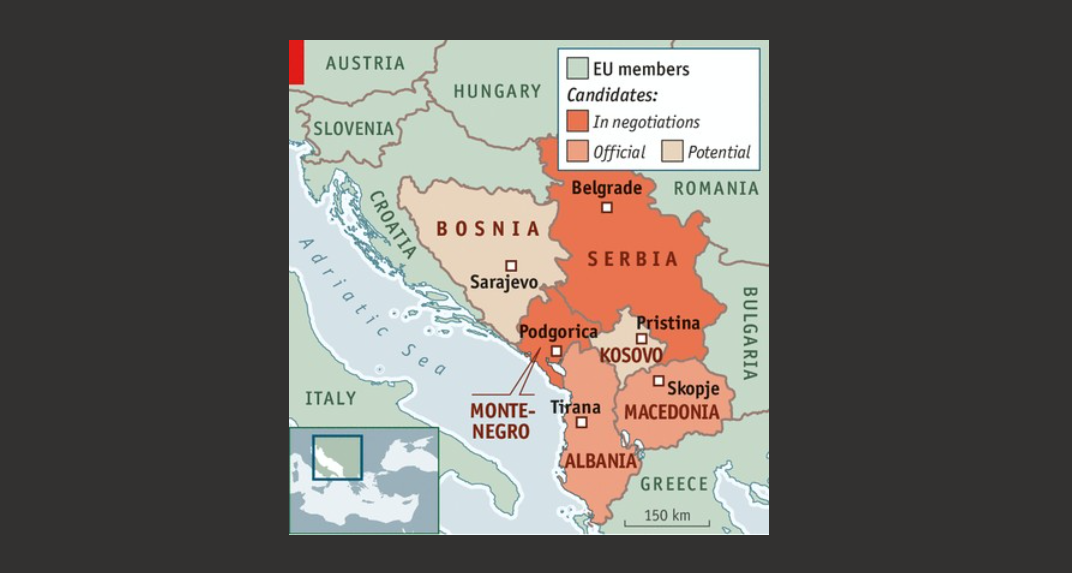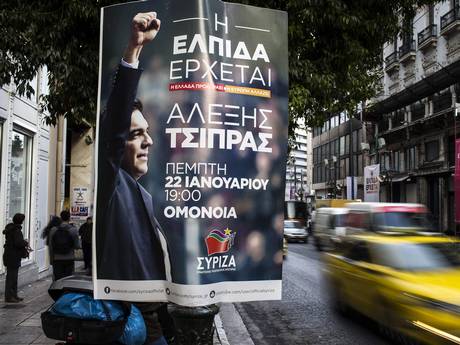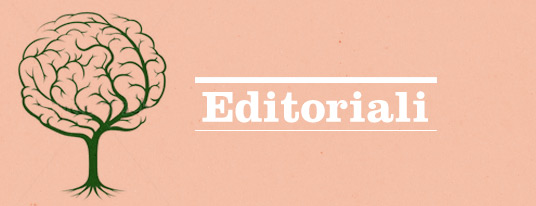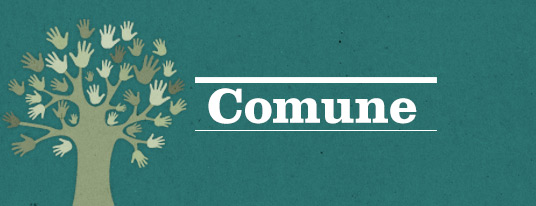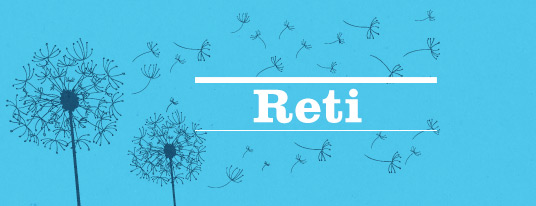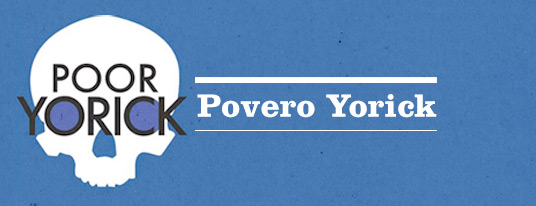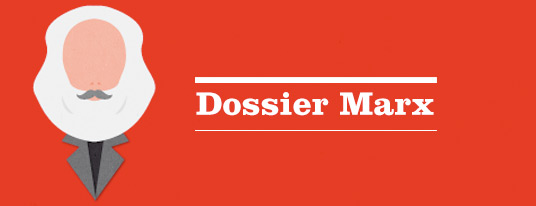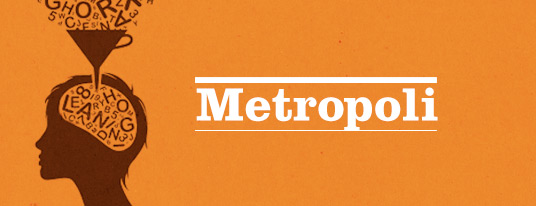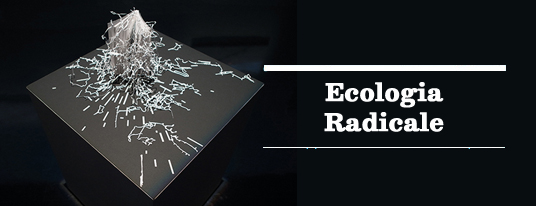By ALEKSANDAR MATKOVIĆ, interview by UGO ROSSI
In this interview we talk with Aleksandar Matković, an activist and researcher from Serbia, currently based in the Institute for Economic Sciences in Belgrade. His main interests are Marxism, imperialism and the critique of political economy. He has been actively involved in several left-wing student and workers’ organizations in Serbia and the Balkans.
In your work, you have described Serbia’s economic-political positionality as the ‘periphery of the periphery of Europe’. Similarly to the post-Soviet economies of Eastern and Central Europe, since the 1990s in Serbia the transition to the market economy has taken the form of a ‘wild capitalism’ centred on the imperative of foreign direct investment, the privatisation of government-owned companies, austerity policies and government-sponsored real-estate megaprojects. What is the role of the European Union in the embrace of this economic model?
Yes, that was in the context of Serbia being an outsider to the EU but also pseudo-integrated with euronized credits, import/export agreements, and a great receiver of EU investments – but without any of the rights of a full EU member. And, of course we have full mobility of commodities without the mobility of people. This means that wage differences between the European periphery and the “periphery” outside of the EU are being exploited by both foreign and domestic capital – their perpetual status as “acceding countries” is actually perpetuating this position. For all of those reasons, non-EU states cannot just say “no” to the European power bloc, at least not in the same way as those within it can. That’s why I called it a “periphery of the periphery” (probably, although others might have done the same). But it’s not only Serbia. Something similar could be said for the rest of the Western Balkans in general – an ad hoc name given to us by the World Bank for lack of a better term.
For the “wildness” of capitalism and the EU’s role: 10 or 20 years ago it would have been called “wild capitalism”, but capitalism itself has long ago gone wild both before and after that. In fact, it was “born (to be) wild” – if you want to make a pun out of it. And you could see it concretely in the form of the outsourcing of production by which it has kept itself afloat in various forms since the 70’s due to falling profitability after WW2, but also after the collapse of the Eastern Bloc. And this is driving it to the peripheries, which it helped create, and where it can run “wild”. It’s something of a historical fact that’s often overlooked.
And in that light, the EU is currently at an interesting moment – it never recovered from 2008 (austerity, dissolution of the remaining social services) and it has to keep its companies afloat in the midst of another often forgotten crisis that began before and then evolved along with COVID19 while at the same time it wants to get decarbonized by 2050. And this “decarbonization process” will be a very fun time for the periphery as well.
For example, how do you keep profits up? If you’re the EU, or at least its Commission, you’ve got to mobilize capital for a Green New Deal in order to save European capitalism to achieve this. But this creates a lot of simultaneous political and other repercussions in the peripheries. Take only the last one (the Green new deal): in order to raise profits and not just close down companies, the EU is helping non-lithium mining companies – like Rio Tinto – to get into lithium, and it’s been documented via leaked info from the European Commission. They are using EU offices in Belgrade for this, while also blackmailing Serbia’s EU accession process almost in exchange for the lithium mine, while also basically funding a war in the East.
So all of this is causing quite a reaction in Serbia. This “green race” caused mobilizations against lithium mining in Serbia and elsewhere – because lithium mining companies are now racing towards peripheral lithium in Portugal and Serbia – causing further political turmoil in societies that were already almost completely devastated with right-wingers like Vučić at their helm. Fun time indeed.
All over these decades, the political system in Serbia has kept a line of continuity. The current President, Aleksandar Vučić, was Minister of Defence in the late 1990s, at the time of Slobodan Milošević. How can you explain this continuity in political and economic terms?
Well, the continuity is Vučić himself, as you rightly perceived. But with one correction – he was Minister of Information under Milošević (which should be even worse) and only briefly a Minister of Defence after Milošević’s fall and he continues to hold control over the media, so there is a direct link between his role then and now. Another, perhaps one of the central continuities that are never openly discussed – is the role of the secret services and state security. They were crucial aids to Milošević and they ran everything from football groups to… basically illegally re-organizing Yugoslav gas imports which kept the war machine running despite international sanctions. Crazy stuff. And they are almost impenetrable to any investigation. This is one of the most unspoken parts of the Balkans that got created after the collapse of Yugoslavia. And you will not find communists there.
In a nutshell, Serbia never recovered from the collapse of Yugoslavia, which is paradoxical since it contributed to it the most. Put shortly, Serbia never recovered from its own ruling class. In fact, most of Serbia is in itself not an important player on the “world stage” – if by Serbia you mean the masses of impoverished people that have all but been destroyed by their own regime. And those parts of it which are “players” on the world stage – or at least minor participants – were created and sustained by the war, as a class.
In your scholarly work, you have investigated the curtailing of democracy as a specific type of governmentality in the Serbian context. Is this a variant of neoliberalism? And what is its relationship with the persistent state nationalism in the Serbian context (and the underlying Greater Serbia ideology), particularly in relation to the question of Kosovo?
In my view, the curtailing of democracy in the name of efficiency has roots which run much deeper than neoliberalism, such as the Rationalisierungsbewegung in Germany, or the efficiency movement & Taylorism in the US, and of course ordoliberalism in Germany. This latter put economic efficiency as the main criterion for the sovereignty of a new state after Germany’s defeat in WW2. In order to curtail state-power, the market had to rule (which inspired Foucault to analyze it as a pivotal moment in the history of governing), but there was something else that was curtailed: communism in West Germany, which later on turned into the East-West divide. After that, you have the rules-based economic integration of the EU, which was inspired by ordoliberalism in a way, and which famously crushed the Syriza movement precisely on matters of where the money for debt-repayment will come from. These are only some of the more important aspects of the historical intertwinement of efficiency and the curtailing of democracy.
So to come back to Vučić – Vučić does the same on LSD, but he also microdoses it.
For example: he does not go into fully demanding that every aspect of society bows down before market efficiency. As I’ve said, there have been far wider movements in history that did exactly this and it could be an important way of viewing our own history, a European one. So, I don’t think Vučić is unique in this, and as far as I know, because almost every other European politician is curtailing democracy while pleading for the betterment of the economy. It’s just the discourse of our times. Vučić talks a lot about GDP, so I would venture to say that he actually copied this ordoliberal behaviour from Western European politicians which is smart if you want their support (like his friend, Angela Merkel’s, for instance), but that does not mean that everything he touches becomes efficient – so, how his rhetoric connects to what’s going on in his ruling power bloc is another matter.
To me, Serbia, like similar autocratic societies, is a fluid state akin to something that Franz Neuman was writing about when he analysed the Nazi state, the Nazi para-state apparatuses and the Nazi economy. Or the prerogative state of a guy called Ernst Fraenkel. Both are kind of in agreement on one thing (take this with a grain of salt) and that is the dynamic nature of the Nazi regime. But it is interesting to see that being repeated today in the first years of neoliberal Serbia… And many authoritarian regimes are fluid, they change structures very fast in order to answer to the needs of capital or autocratic leaders. So, yes, they may talk of efficiency at some point, but I wouldn’t reduce it to that. They will change their talk depending on what’s in the background, and this we may or may not know – if they need it for electoral purposes they will switch to human rights, stability, etc.
But a characteristic of authoritarian regimes is precisely their changing structure and non-obeyance of the heritage of democracy. I would venture and say that this fits capital more nicely than democratic-procedural forms of the state, because it can reflect its movement.
But even then, you have some new things which do not reduce everything to efficiency but rather the opposite – take the idea of a “Serbian world” – influenced by the idea of a Russian world –, which could be dangerous – it is an idea of unifying Serbs from other countries under a single cultural space – which would benefit Serbian companies abroad of course, or historical revisionism, which empowered Vučić’s crew ideologically. But that has its roots in the earlier regime of Milošević, who actually argued that Kosovo and Vojvodina, as autonomous provinces, are a – get this – barrier for efficiency, and a trampling bloc for Serbia’s internal market within Yugoslavia. That was already said in 1987. And then you had Belgrade companies taking over Vojvodinian companies and getting tax brakes and what not. Now it’s more etheral, and this expansion depends on Russian influence, but so far it’s been fixed to the spreading of cultural influence beyond Serbia. Wheather this will remain the case or further expand into an open-economic annexation, time will tell.
Since Vučić’s political party came to power in 2012, three important political movements have contested its politics: first, in 2015-2016 the Ne Davimo Beograd movement that contested the government-sponsored waterfront regeneration project in Belgrade and the illegal tearing down of buildings and annihilation of public space that it caused; then, in 2018-2020 the street protests denouncing Vučić’s autocratic government in which political parties of different orientations were involved; thirdly, between 2021 and 2022, the unprecedented wave of environmentalist mobilisations protesting against a state-sponsored lithium mine investment in the Rio Tinto valley, commonly known as the ‘ecological uprising’. What is the legacy of these contestations in political terms?
Well, the first and most important thing is the new “MORAMO” (“We must”, a rip-off of the Croatian “We can” which is itself a rip-off of the Spanish “Podemos”). It’s a centre-left coalition formed within the protests. Its members include not only Aleksandar Jovanović Ćuta’s “Ecological Uprising” but also allies including the center-left candidate Nebojša Zelenović of the Green Party Together for Serbia, and Let’s (not) Drown Belgrade, known, as you’ve already said, for its opposition to urban regeneration transforming the face of the capital. This latter ran together with Zelenović, but also with a smaller left-wing platform composed mainly of two local left-wing NGOs called “Solidarnost,” which previously abandoned the “Party of the Radical Left. The bloc is not exclusively left-wing and has only marginally to do with Marxism. But it had the advantage of being formed out of a mass movement coupled with established political players. Keeping this in mind, it was expected that it could still represent a breakthrough, and weaken the power of the ruling Serbian Progressive Party, polling with 9 percent nationally and 13 percent in Belgrade. When the parliamentary, presidential and Belgrade’s city elections were held – all three on April 3rd – the results were somewhat less satisfying, but especially given the circumstances, nevertheless crucial. The coalition 4,6% of the parliamentary elections, entering the Serbian National Assembly with 12 seats, and 10,8% of the votes in Belgrade, entering the city assembly. The downside of the elections was that various right-wing parties also scored high, chief among them the AFD-influenced party “Dveri” – which was also opposing Rio Tinto – also returned to the parliament with 3,9% or 10 seats. This also shows that the elections brought about both progressive and conservative reactions to both Vučić’s power and lithium mining. The same goes for the locals in Gornje Nedeljice, a village directly hit with Rio Tinto’s operations and where one of the actual mine shafts is supposed to be located. Yet, despite the dangers of lithium mining, at 57,52%, they voted predominantly in favor of Vučić, showing the true complexity of Vučić’s reign and causing some post-electoral controversy among the liberal left which partly based its campaign on fully equating Rio Tinto with Vućić’s government. But I don’t think it’s that controversial, once you factor in that this is basically his usual electoral body.
What is important is that this bloc has initiated now a transformation into a single party that will have the support of the European greens and, with this, they hope for a more substantial electoral successes in the future. So, they could – with a new kind of infrastructure – probably represent a very strong alternative to Vučić in like 10 years or so – or after Vučić leaves the political scene.
How these mobilisations have been reflected in the Serbian general election of 2022? Despite the contestations of the last few years, Vučić has clearly won the election, with a 58%.
Well, I’m sure no serious person on the Serbian opposition would seriously hope for Vučić to be defeated in a single election. His party is basically the most numerous in Europe – over 500.000 members in recent years (some new estimates say 750.000!). For comparison, at the height of Merkel’s power, CDU had 220.000. In Germany, which is almost 20 times larger than Serbia in terms of population. And most of these people are in it for surviving – not greed, not power, not money, but survival. This is crucial. Serbia, being one of the most unequal and most poor countries in Europe, is basically sustaining itself by coming under one large party that is amassing all the resources, from jobs, social security, gifts, corruption, you name it. So, for me it’s not a surprise that he won. But he would have to share power now – but not much. It will take some time before he goes, and even when he goes, you will have to do something with over 500.000 of those who depended on him. That’s anyone’s guess how that would look like once Vučić is gone. For all I know, the Balkans may change completely if this party dissolves.
What is the situation of the political left in Serbia and particularly of the new left?
For me, the left – in the sense of its democratic legacy – has been destroyed around 2017, along with its gradual development into “movementism” (this, also, for me, is one of the consequences of the fluid authoritarian state). Its expansion into various movements without their own internal structure – which could have been stabilized in the Party of the Radical Left, or at least there were attempts to do so – ultimately led to their absorption into various oppositional parties and movements. Some joined the new “Moramo” movement and finally managed to get into the parliament, some became eternal activists protesting ultimately without much success. But in all cases, the left got dissolved into the opposition, and not much was left of its initial stance of representing working-class interests directly above and beyond the divide between the opposition and the government. And this approach had potential. But no matter how you measure it today, it doesn’t look good. For example, Marxism, while nominally recognized as one of the most central referential points on the left, also failed to take roots in more than a few organizations, and is even combated under the radar, which is unfortunate since a lot of energy was wasted on passing ideological trends and debates, but that is nothing new. So, don’t expect much from the Serbian left.
The Serbian government led by Vučić has kept good relations with Russia, refusing to impose sanctions on Russia during the current war in Ukraine, as well as in the previous Crimean crisis. How will this position impact Serbia’s EU accession process?
Well, if we smile to Europe we might hope to get in before it dissolves. But, we’re nobody’s favourite kid, you know, in terms of our “foreign policy” – if you could call it that. This consists in sitting upon 4 “pillars”: China, Russia, EU and the US, and *somehow* trying to play with all 4 at the same time, allegedly, to Serbia’s advantage, but in reality, we’ve just become a nice parking spot for imperial capitals. Which is ok for Vučić as long as there’s no drag race on the parking lot. And that’s precisely what’s been happening. Our foreign policy is coming back to bite us in the ass, since we shall now have to favour one bloc over the other, and we’ll lose whatever we choose. Your question on the sanctions is a perfect example: yes, we didn’t enforce our sanctions upon Russia – and it is, you see, nowhere discussed what precisely those sanctions would be – but last week we *did* impose Serbian sanctions, completely in view with the politics of EU… against Myanmar because of the coup (?). At the same time, the president is issuing public statements on how we have good resources and stockpiles of wheat, sunflower oil, etc. – enough to last 3 months, which should, allegedly, should be good news. So, the government obviously likes to joke around, not least with our own fate under extreme circumstances. To me, the Serbian leadership looks like a bunch of adrenaline junkies although I wonder sometimes whether they are just a crazy bunch of war criminals or if they are extracting some kind of perverse pleasure from all of this.
In Serbia, street demonstrations about the current war in Ukraine seem to have been monopolised by pro-Russian nationalists. All across Europe, the pacifist movement seems to find it hard to raise its voice in an effective manner. Is there any possibility for a progressive, anti-militarist pacifist movement in Serbia?
No. But on the contrary, we have to build it. Of course, there’s a variety of reactions. But people forget that we no longer live in a leftist debate club. You no longer have the luxury of innocent opinion and your opinion on Ukraine can be instrumentalized in the field of war – if you consider propaganda as part of war, and it could very well be a constitutive one.
We should be aware of this. Otherwise, we will end up cheerleading either for NATO (as some London academics and even the Rosa Luxemburg Foundation’s English website did – can you imagine?) – or for Russia, as parts of the Serbian left does, following a large part of pro-government supporters. What gets omitted on both sides is precisely the truth of an inter-imperialist conflict – which sets us apart from European Marxists from the beginning of the past century.
Also, what’s more complex is that, in this case of Ukraine, the Russian-American proxy war that’s also taking place on a Chinese Belt and Road country meaning that Chinese investment will come pouring in at one point, and politically, China’s neutrality will, surprisingly from past experiences, score points in Eastern Europe. And here Serbia was at the forefront, so to speak. So, these processes have already formed a world-changing event that will remain so even if it does not escalate into a full-flagged Third World War.
Regarding Serbia in particular, the Serbian left even has a theory of a “unipolar” world that was allegedly destroyed by Putin overnight, so that now we live in a multipolar world which is somehow better for class struggle. The same doctrine I later saw being put forth by the Director of Russia’s Foreign Intelligence Service (SVR) Sergey Naryshkin, who basically has a mandate to justify the invasion, while both he and the Serbian left(-right) are very bad at analysing things like a global competition of different national capitals after 2008. So, be wary of what you read, even if you don’t come from Eastern Europe. Also, why does the doctrine of Russia’s foreign intelligence re-appear in Serbia? Namely, Serbia has a special relation to this war: it’s a Russian ally, and it bears the experience of NATO bombings from 1999, which Russia tried to stop, but 22 years later, Russia is now using Kosovo as a pretext for Ukraine (“If Kosovo can be independent, so can Donetsk & Luhansk, etc.). This puts Serbia in a very special situation. First, it has the glorious privilege of being the spearhead of the European reactionary forces. We had 10,000 strong protests in favour of Putin; “Z”’s is drawn all over the place, including T-shirts and merchandise retailers at railway stations who will sell anything that’s popular – which tells you a lot if you’re a foreigner in Serbia. But at the same time, the far-right is in agony over Putin since he implicitly recognized Kosovo’s independence for his own purposes. So, we both glorify him and agonize over him at the same time.
So, as everyone knows by now, we have all sorts of opinions… but no peace movement – both in Serbia and abroad. Yet this is precisely what should be reversed. The war in Ukraine exposed how disorganized the left was. In a sense, even if the war in Ukraine gets finished, the task of building that international peace movement would still be ahead of us. Unlike the seventies, there are no peace movements because peace as a criterion has withered away along with the discourse of global human emancipation that – like it or not – was associated with communist and post-colonial liberation struggles of the previous century. And, if you go back in time to the First World War, today there is no worker’s movement to sabotage the war and turn it back against in the face of those who are leading it. So, this is what it means that “there is no alternative” – no peace movement, no movement that would go both against Russia and NATO, no critiques of Ukraine’s banning of left-wing parties, or the idea that the war had created not one but two dictatorships, and expanding military budgets almost everywhere else – if we can’t see where this is going, we will fail to be up to the task. And all of this in the midst of a global climate breakdown. So, this is precisely our task: to build an alternative to ruling classes who’re dragging Europe into war once more. And the task of peace-building is ahead of us because we – the broadest conceivable left of Europe – are in the middle of inter-imperial conflicts between European capitals & US and China which will get worse as time goes by. The financial crisis of 2008 damaged Europe far more than the other two, and it is here that social conflicts between the two will leave their ugly consequences quite quickly.
That is why peace should be the ultimate criterion for your opinion on war: does your opinion serve to justify peace or does it serve to justify war? Tertium non datur. And if it serves the latter, it might as well be war propaganda as I’ve tried to show in the case of Serbia.

